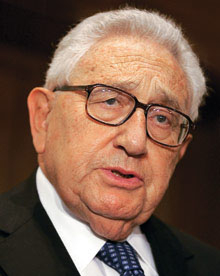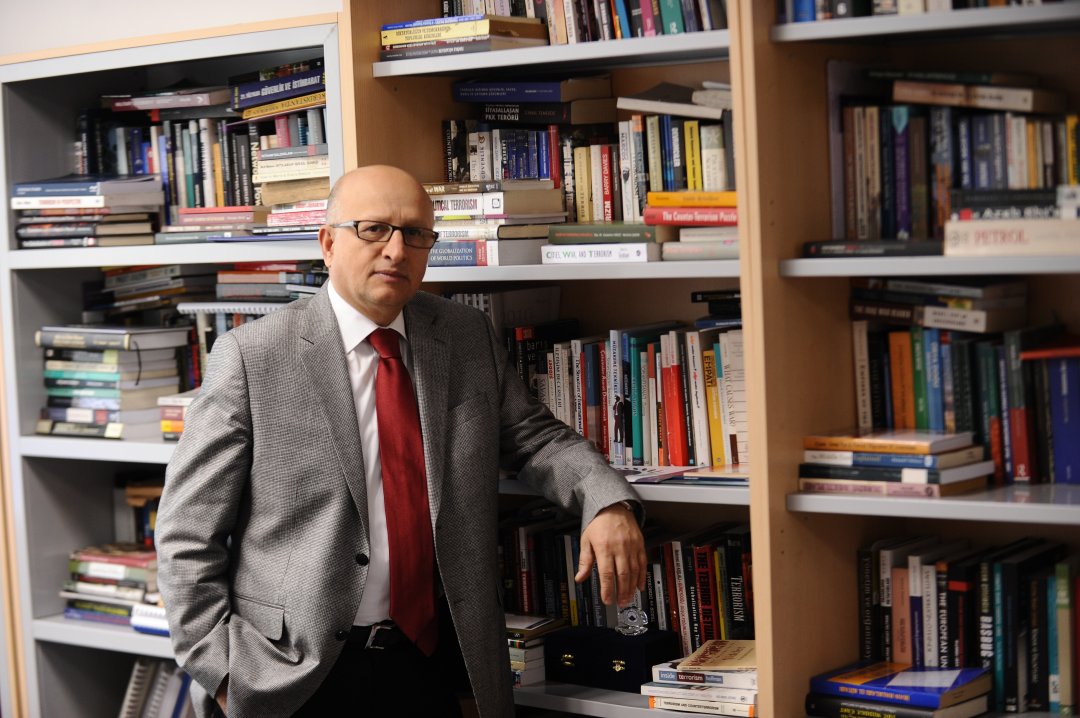Author:
April 2, 2009
As President Obama arrives in Ankara, he will find a Turkish government eager to play an influential role in the Middle East. While Turkey has made important contributions to the region in recent years, its activism has been controversial in Washington. When Turkish Prime Minister Recep Tayyip Erdogan stormed out of a contentious panel on the Gaza crisis at the World Economic Forum in Davos in January, he injected additional controversy into Turkey’s diplomatic foray in the Middle East.
The incident produced a torrent of criticism from some U.S. policymakers, analysts, and journalists who regarded the uproar in Davos as proof positive that Turkey, under Erdogan’s Justice and Development Party, which is rooted in Turkey’s Islamist movement, had made the turn away from the West in favor of the radicals of the Middle East. Erdogan’s behavior at Davos, his seeming embrace of Hamas during Israel’s Gaza offensive, and his strong criticism of Israel, which at times veered into classic anti-Semitism, left observers wondering whether Turkey could continue to play a constructive role in the Middle East.
The Prodigal Pasha
Since the Justice and Development Party (known as AKP) came to power in late 2002, Ankara has pursued a conscious strategy of reestablishing Turkey’s links with the former Ottoman domains to the south and the east. To be sure, there have long been Turkish diplomatic missions throughout the Middle East, but given Ankara’s foreign policy orientation, which placed a premium on relations with the West and the official secularism of the republic, Turkey was a marginal player at best in the Middle East. The AKP governments, first under Prime Minister Abdullah Gul and since early 2003 under Erdogan, embarked on an ambitious foreign policy–concomitant with their equally bold domestic political and reform program–that sought to secure Turkey’s bid to become a member of the European Union while simultaneously cultivating relationships with Cairo, Damascus, Baghdad, Riyadh, and Tehran. Turkey’s effort to draw closer to both Europe and the Middle East reflected a belief within the AKP that its foreign policy needed to be normalized. Although Turkey’s almost exclusive orientation toward Europe and the United States might have been appropriate during the Cold War, when its membership in the North Atlantic Treaty Organization (NATO) was a paramount foreign policy fact, Turkey’s interests now demanded a multidimensional foreign policy.
The Justice and Development Party’s approach was met almost immediately with skepticism in Washington. The often testy negotiations between Washington and Ankara in late 2002 and early 2003 over the use of Turkish territory for the planned invasion of Iraq and the parliament’s subsequent inability to pass legislation giving U.S. forces permission to launch the attack from Turkey angered the United States. Yet Iraq was just the first in a series of episodes where Ankara and Washington found themselves on opposite sides in the Middle East. In 2005, for example, as the United States sought to isolate Syria over Damascus’s alleged responsibility for the assassination of former Lebanese Prime Minister Rafik Hariri and its central role in funneling jihadis into Iraq, the Turkish government continued a policy of deepening its diplomatic and economic ties with the Syrians. After Hamas won the Palestinian elections in January 2006, then Foreign Minister Abdullah Gul and other Turkish foreign ministry officials hosted Hamas’s external leader, Khaled Meshal, at AKP headquarters in Ankara. These developments came against the backdrop of improved relations between Ankara and Tehran and Prime Minister Erdogan’s periodic tough rhetoric that Israeli military operations in the Gaza Strip and the West Bank were tantamount to “state terrorism.”
Ties Shift, Eyebrows Rise
Each of these developments at first blush raises serious questions about Turkey’s foreign policy orientation. Ankara’s seemingly abrupt divergence from the Western consensus was disorienting to policymakers and other observers who concluded that Turkey could no longer be considered a reliable partner or play the “honest broker” role in Middle Eastern conflicts that Turkish officials coveted. Hosting Khaled Meshal, who is responsible for a fair number of both Israeli and Palestinian deaths, was clearly a mistake. Not only did the Hamas leader resist Turkish entreaties to recognize Israel and to renounce armed struggle, the encounter also angered Jerusalem and Washington–two strategically critical relationships for Ankara. Yet, it is important to note that with all the questions about who “lost” Turkey and whether Turkey is “tilting East,” there is nothing extraordinary about Ankara’s approach to the Middle East. Against the backdrop of the end of the Cold War, Turkey’s tortured relationship with the European Union, and the security fallout from the invasion of Iraq, any Turkish government would likely pursue a foreign policy similar to that of AKP. The Hamas episode aside, it is abundantly clear that Turkey’s Middle East policy is consistent with Turkey’s national interests, and importantly, one that Washington can leverage to advance its own regional goals.
On the range of important issues from Iraq and Iran to Middle East peace, Turkey’s policies are generally consistent with those of the United States. The Turks have long sought a stable, federal Iraq. The flowering of relations between Ankara and Irbil, the seat of the Kurdish Regional Government, combined with considerable Turkish investment in northern Iraq mitigates a complicating factor in Washington’s Iraq policy. The situation in Kirkuk and the persistence of Kurdistan Workers’ Party (PKK) violence against Turkey remain flashpoints, but as the Turks and Iraqi Kurds develop closer ties, the magnitude of these problems diminishes, forestalling some of the most dire scenarios about Turkish military intervention that could unravel the progress that Iraq has made over the last eighteen months. In the context of improved Turkish-Iraqi Kurdish relations, the Kurdish president of Iraq, Jalal Talabani, has called upon PKK terrorists to lay down their arms or leave Iraq. For the United States, Turkey is no longer the malevolent wildcard in the game of stabilizing Iraq.
Iran, Syria, and Mammon
Viewed from a U.S. standpoint, Turkey’s two most controversial relationships in the Middle East are Iran and Syria. While critics have often used these ties as clear indications of AKP’s Islamist worldview, Ankara nurtured relations with Tehran and Damascus in the late 1990s (before Justice and Development even existed) and early 2000s. The Turkish leadership supports the Obama administration’s efforts to establish a dialogue with Tehran. From Turkey’s perspective, good bilateral relations with Iran and regional stability are critically important, not for ideological reasons, but economic calculation. Iran is the largest supplier of natural gas to Turkey only after Russia. Although the Turks would like to diversify their supplies and have plans to invest in large-scale renewable energy programs, in the short and medium term, Ankara will do all that it can to ensure its relations with both Tehran and Moscow remain cooperative and friendly.
The exigencies of energy supplies are not bound up in Turkey’s relations with Syria, but there is a strong economic component to the relationship. Turkey’s predominantly underdeveloped southeast is closer to Damascus than to Kayseri, Ankara, or Istanbul. The Turks believe that increased bilateral trade serves two critical purposes–it promotes development in places like Cizre, Gaziantep, and Diyarbakir and provides a boost to the Syrian economy. The architects of AKP’s foreign policy make the argument that if Turkey’s neighbors prosper, they are also more likely to be pacific, ensuring Turkish security and providing a regional environment more conducive to peace. Turkey’s ties with Syria serve another geostrategic interest. In 2006-2007, some foreign policy analysts were seized with the idea that Damascus could be “peeled away” from its strategic relationship with Iran. Although it is unlikely that Damascus will easily relinquish its ties with Tehran, the Turks can play an important role in providing the regime of Bashar al-Assad with an attractive alternative to Iran. It is surely preferable to Washington for the Turks to be engaging in dialogue with the Syrians than for Assad to be speaking with Hezbollah leader Hassan Nasrallah and Iranian President Mahmoud Ahmadinejad in isolation. Turkey’s ties with Syria have already paid dividends in the Middle East as Ankara sponsored indirect talks between Israelis and Syrians in 2008. Those negotiations did not produce an agreement and were halted over Israel’s invasion of Gaza in December 2008, but by all measures the Syrians and Israelis made progress with the help of Turkish mediation.
O, Jerusalem
Perhaps Turkey’s most complex relationship in the Middle East is with Israel. While the two countries maintain close military and economic ties, relations have been decidedly uneasy. From the start, the Israelis perceived a Palestinian tilt in AKP’s approach to the Middle East and were wary of Ankara’s relations with Tehran. At the same time, the Israelis, by their own admission, have complete trust in Prime Minister Erdogan’s efforts to mediate between Israel and Syria. For their part, the Turks were concerned about reports that the Israelis were developing ties with both the Iraqi Kurds and an organization related to the PKK, the Party for a Free Life in Kurdistan or PJAK, which is battling Iran. Ankara also argues that Israeli actions in the West Bank and the Gaza Strip only undermine their efforts and those of others to broker peace. Relations between the two countries deteriorated during Israel’s Gaza offensive, yet recent reports that the Israelis have dispatched a senior foreign ministry official to Ankara may indicate that both governments are looking for ways to reestablish trust. If incoming Israeli Prime Minister Benjamin Netanyahu places an emphasis on striking a deal with Syria, as many expect, Turkey will initially play a prominent role in bringing the two parties together and brokering their negotiations.
Ultimately, the challenge for Turkey is, first, whether it has the capacity to pursue an activist role in the region without undermining its other priorities, and second, the extent to which other regional powers want Ankara to play the role it intends. Thus far, the Turks seem able to balance their desire to be influential in the Middle East with other national interests in the Caucasus, Cyprus, and Europe. There is also a palpable sense in the Middle East that Turkish activism, while helpful at times, can nevertheless undermine the efforts of more traditional regional powers like Saudi Arabia and Egypt. As Cairo and Riyadh seek Palestinian reconciliation, there is concern that Turkish activism will provide a way for Hamas to resist Arab pressure to come to terms with Fatah. Still, there is no question that Turkey can play a constructive role in the Middle East. It has gained the confidence of the regional players on most of the major issues of great importance. As a result, in an era of diminished resources for the United States, Turkey can be a critical ally in the pursuit of Washington and Ankara’s overlapping interests.







